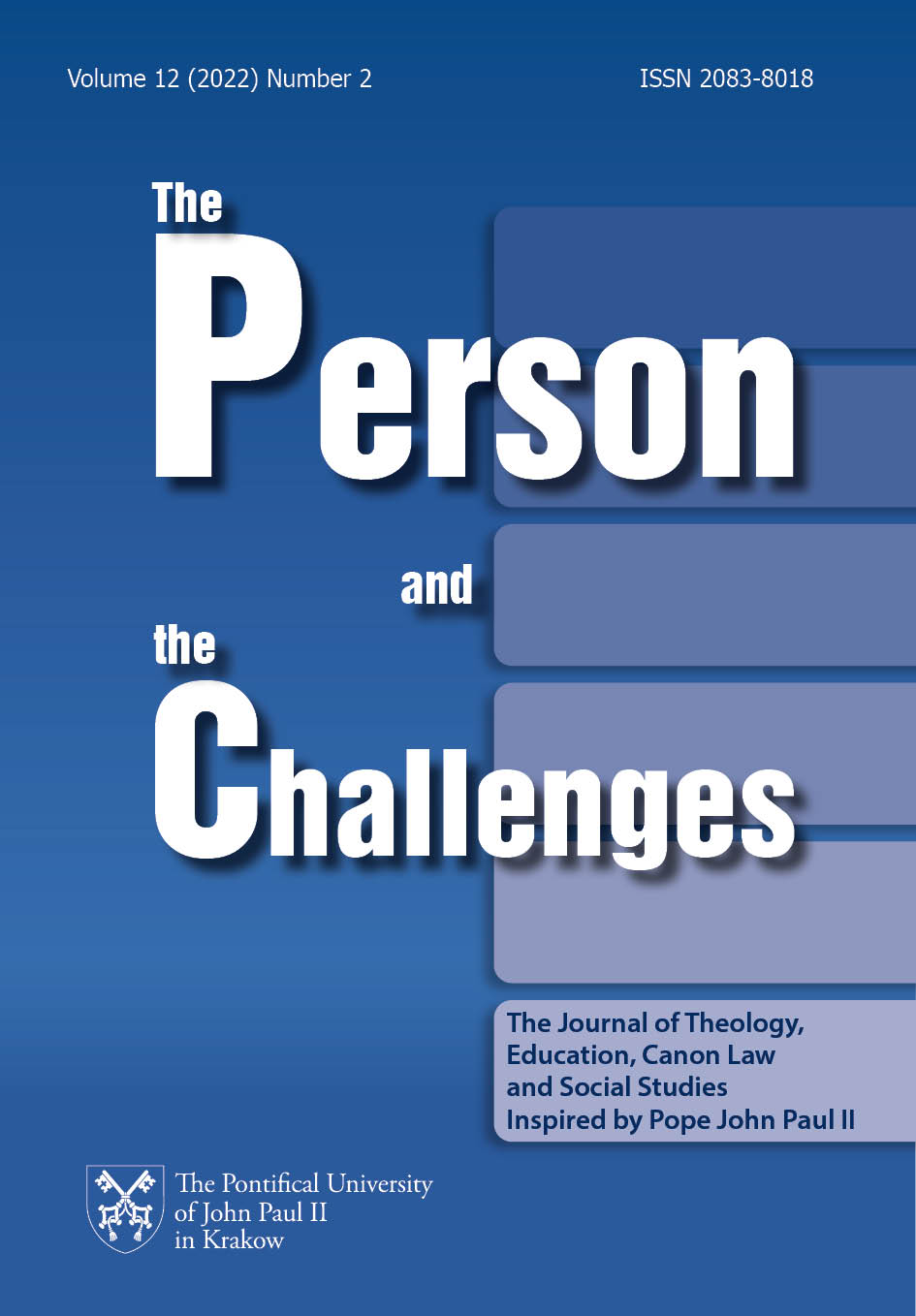Theological Axiology of Reality
DOI:
https://doi.org/10.15633/pch.12202Słowa kluczowe:
Theology, epistemology, axiology, dualism, methodologyAbstrakt
In the present discussion of the multiplicity of sciences as against the unity of knowledge, sometimes the possibility of one super-science is advocated with a suggestion that all other scientific methods should be reduced to just one method of a one particular, usually natural science. Such reductionism often leads to disrespectful pronouncements at the address of all other sciences and their methods.
This article advocates theological foundations for a multiplicity of scientific methods. Biblical ontology introduces a series of dualities called here, for the lack of a better word, “biblical graded dualism.” It is a system of asymmetrical dualities that give substance to the idea of the hierarchy of being. In the article an axiological view of reality is deduced that should facilitate a more respectful and fruitful debate among the sciences.
Bibliografia
Barfield O., Saving the Appearances, New York 1965, Harcourt, Brace & World.
Barth K., Church Dogmatics 2/2, Edinburgh 1957, T & T Clark.
Bernal J.D., The Social Function of Science, London 1939, George Routledge and Sons.
Boutroux E., Pascal, Manchester 1902, Sherratt and Hughes.
Breitbart W., God and Science: Can We Believe in Both?, in: Palliative and Supportive Care, Cambridge 2005, Cambridge University Press, 3, pp. 167–169, DOI: 10.10170S1478951505050273.
Brunner E., Truth as Encounter, Philadelphia1964, The Westminster Press.
Case-Winters A., Reconstructing a Christian Theology of Nature, Aldershot 2007, Ashgate Publishing.
Deleuze G., Seminars, https://deleuze.cla.purdue.edu/seminars/anti-oedipus-ii/lecture-02 (11.7.2022).
Feyerabend P., Against Method, London 1993, Verso.
Frazier Wall J., Andrew Carnegie, New York 1970, Oxford University Press.
Gattei S., Agassi J. (eds.), Physics and Philosophy, New York 2016, Cambridge University Press.
Geertz C., Local Knowledge, New York 1983, Basic Books.
Göcke B.P. (ed.), After Physicalism, Notre Dame 2012, University of Notre Dame Press.
Goldie P., The Emotions, Oxford 2000, Clarendon Press.
Gunton C., The One, the Three and the Many, Cambridge 2005, Cambridge University Press.
Gutting G., What Philosophers Know, Cambridge 2009, Cambridge University Press.
Haeckel E., The Riddle of the Universe, New York 1905, Harper & Brothers.
Harris S., Waking Up: A Guide to Spirituality without Religion, New York 2014, Simon & Schuster.
Heisenberg W., Physics and Philosophy, New York 1958, Harper & Brothers.
Huemer M., Ethical Intuitionism, London 2005, Palgrave Macmillan.
Huxley A., Literature and Science, New York 1963, Harper & Row.
James W., The Varieties of Religious Experience, London 2002, Routledge.
Jaspers K., The Perennial Scope of Philosophy, London 1950, Routledge & Kegan Paul.
Kaufmann W., Existentialism from Dostoyevsky to Sartre, New York 1958, Meridian Books.
Koestler A., The Ghost in the Machine, New York 1989, Arkana.
Lewis C.S., Mere Christianity, London 2009, HarperCollins Publishers.
Lewis C.S., The Abolition of Man, New York 1996, Touchstone.
Lovejoy A.O., The Revolt against Dualism, New York 1930, W.W. Norton & Co.
McGrath A., The Territories of Human Reason, Oxford 2019, Oxford University Press.
Mettrie J.O. de la, Man a Machine, Chicago 1912, The Open Court Publishing Co.
Mills J., The Unconscious Abyss, Albany 2002, State University of New York Press.
Mises L. von, Theory and History, Auburn 2007, Ludwig von Mises Institute.
Preston J., Feyerabend: Philosophy, Science and Society, Cambridge 1997, Polity Press.
Putnam H., The Collapse of the Fact/Value Dichotomy, Cambridge 2003, Harvard University Press.
Scheler M., Selected Philosophical Essays, Evanston 1973, Northwestern University Press.
Schneider K.J., Rollo May on Existential Psychotherapy, “Journal of Humanistic Psychology” 49 (3009) 4, p. 422.
Snow C.P., The Two Cultures, Cambridge 2012, Cambridge University Press.
Sokal A., Transgressing the Boundaries: Towards a Transformative Hermeneutics of Quantum Gravity, http://www.physics.nyu.edu/sokal/transgress_v2_noafterword.pdf (4.7.2022).
Swartz O., Conducting Socially Responsible Research, Thousand Oaks 1997, Sage Publications.
Szasz T., The Second Sin, New York 1973, Doubleday & Co.
Thiselton A.C., The First Epistle to the Corinthians, Grand Rapids 2000, Eerdmans.
Vitz P.C., The Psychology of Atheism, Addison 2008, Christian Leadership Ministries.
Warnock G.J., Contemporary Moral Philosophy, London 1967, Macmillan and Company.
Watson R.A., Shadow History in Philosophy, “Journal of the History of Philosophy” 31 (1993) 1, p. 105.
Zizek S., Organs without Bodies, London 2012, Routledge.
Pobrania
Opublikowane
Numer
Dział
Licencja
Prawa autorskie (c) 2022 Pavel Hanes

Utwór dostępny jest na licencji Creative Commons Uznanie autorstwa 4.0 Międzynarodowe.
Autorzy publikujący w czasopiśmie udzielają jego wydawcy zgody o następującej treści:
- Autor zachowuje autorskie prawa majątkowe do utworu, a jednocześnie udziela wydawcy czasopisma zgody na jego pierwszą publikację w wersji drukowanej i wersji online na licencji Creative Commons Uznanie autorstwa 4.0 Międzynarodowe oraz zgody na wykonywanie opracowań, w tym przekładów.
- Autor ma możliwość udzielania zgody niewyłącznej na opublikowanie utworu w wersji, która ukazała się w czasopiśmie (np. zamieszczenia go w repozytorium instytucjonalnym lub opublikowania w książce), wraz z informacją o jego pierwszej publikacji w czasopiśmie.
- Autor może umieścić swój utwór online (np. w repozytorium instytucjonalnym lub na swojej stronie internetowej) jeszcze przed zgłoszeniem utworu do czasopisma.

